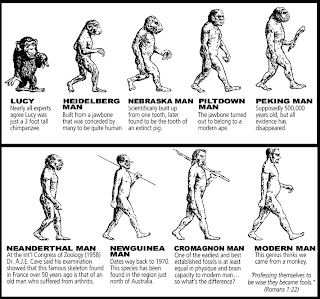Once upon a time, self-publicity was permitted freely on Reddit, even if not actually encouraged. At that time the community was thought to be able to sift the wheat from the chaff. Posts that were of good enough quality would rise to the top, and those that were inferior would not, independent of the identity of the person who submitted them.
But now - without warning - you might find yourself banned from one sub-reddit for posting just 3 or 4 of your own blog posts over a period of months. The /r/humour moderators did at least have enough of a sense of humour to rescind the ban once they had been contacted. They also had the decency to tell me about it - albeit hidden behind a red envelope symbol that I didn't notice for a while. I felt that I had been treated fairly at the time. However, at least three friends have found themselves banned from other sub-reddits with no notification at all, and the whole thing is bewildering to new users trying to work out what they are now doing wrong.
Subsequently, I was posting regularly to the /r/atheism sub-reddit as I noticed was common with a few other atheist friends. Clearly the /r/atheism moderators were not bothered by this, and with a rising karma figure one might assume that the community was benefiting in some way. Again, I was very happy with the way that this sub-community spoke its mind about links that I provided to various other sites and to my own Something Surprising blog.
I have even blogged about the benefits of the slightly quirky Reddit community.
But then - some obnoxious and abusive b*****d who turns out to be the moderator of another sub-reddit (which I will not name) decided to indulge in a campaign of reporting contributors who posted things that offend him. If his name was not 'iesvs' I might be tempted to think that he was an islamist terrorist. I suppose that is still not totally out of the question. I say 'he' rather than 'she' because his abusive comments are of a style that make it perfectly clear that he is a 'total-prick', and his obsession with potentially illegal Kindle hacking activities seem to be geekishly male. (I'm being narrow minded and judgemental here!)
Instead of indulging in intelligent and reasonable debate, this character uses his knowledge of the Reddit system to silence views that he does not like. By repeatedly flagging a huge number of users - ten or more per day - as 'blogspot spammers', on Reddits that he does not moderate, the Reddit admins are persuaded to administer a sneaky and silent sentence.
They use a duplicitous technique known as 'shadow-banning'. To the user, Reddit appears to work perfectly normally with the one exception that nobody at all seems to follow the links that you provide. It takes a bit of research - all wasted time - to discover that there is one sure way to find out whether you are in this state. You visit the Reddit.com/user/
 |
| Shadow-banned - or ghost-banned! And proud of it! |
The Reddit admins do not seem to respond to messages. Why should they bother? There are plenty of other users and their time is limited. They are not attributable to anyone and don't have to justify themselves. Fair enough, but in my opinion they are a disgrace to the sub-reddit communities who live under an online 'sword of Damocles' unable to retain regular users who have enriched their world. This isn't just me but many other regular contributors.
Many disgruntled users will set up new accounts every time this happens and find ways to continue to patronise Reddit. However - those who refuse to be silenced impolitely like this - like me - will just go to Twitter and other networking sites instead. We might even write critical blog posts too!
I, for one, will not be looking to maintain a strong presence on Reddit. That is not to say that I don't want my loyal and interesting readers to post items that they particularly like - I just won't be doing it myself.
Minus one vote for Reddit.



























